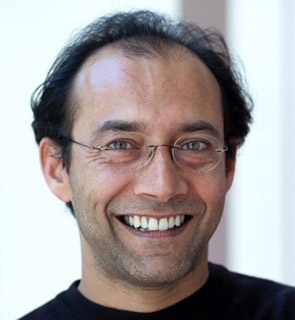Spotlight | Literature
Shankar Raman wins Levitan Prize in the Humanities
$25K prize supports innovative scholarship
Deborah K. Fitzgerald, Kenan Sahin Dean of the School of Humanities, Arts, and Social Sciences, has announced that Shankar Raman, Professor of Literature, has received the 2013 James A. ('45) and Ruth Levitan Prize in the Humanities. The $25,000 prize is awarded annually to support innovative and creative scholarship in the humanities. The prize will support Raman's development of his manuscript-in-progress, Before the Two Cultures: Literature and Mathematics in Early Modern Europe.
Upon hearing the news, James Buzard, Head of MIT Literature, commented "Shankar Raman—the one member of the MIT Literature Faculty who is also an MIT alum—is a Renaissance man. As his current research on literature and mathematics suggests, he has a passion for knowledge and critical inquiry that embraces both the humanities and the sciences. He is exploring a time when the so-called 'two cultures' divide had not yet opened up, and he is modeling a way to bridge that divide in our own time. He's an inspirational colleague."
Raman's interests span a range of topics in late medieval and early modern literature and culture, with especial focus on colonialism, history of ideas, and history of science. His teaching at MIT includes: science and literature, Shakespeare, Renaissance poetry and drama, literary theory, and postcolonial fiction. Raman received his PhD in English Literature (with a minor in German) from Stanford University in 1995, shifting fields after two S.B. degrees from MIT, in Electrical Engineering and Architecture, and an M.S. in Electrical Engineering from U. C. Berkeley.

"Shankar Raman is a renaissance man...He has a passion for knowledge and critical inquiry that embraces both the humanities and the sciences. He is exploring a time when the so-called 'two cultures' divide had not yet opened up, and he is modeling a way to bridge that divide in our own time."
— Jim Buzard, Professor of Literature, Head of MIT Literature